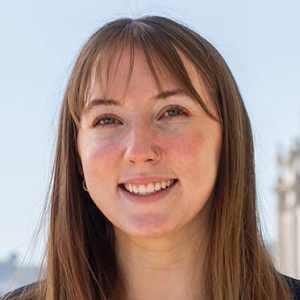
Public Law Update – California Supreme Court Finds Elected Officials Are Not Employees for Purposes of Whistleblower Protection Under Labor Code Section 1102.5
Jul 23, 2025In Brown v. City of Inglewood, the California Supreme Court held elected officials were not “employees” for purposes of the whistleblower statute. The Court found that because elected officials were not explicitly defined in Lab. Code § 1106, elected officials were not entitled to whistleblower protection under Lab. Code § 1102.5. Further, even though common law tests of employment are utilized in the tort context, it is not appropriate to apply common law tests in the whistleblower context because of legislative intent, legislative history, and related statutes.
The Court’s ruling is important because it clarifies that elected officials are not entitled to whistleblower protection under Lab. Code § 1102.5 and are not included in the definition of “employee” in § 1106. The phrase “including, but not limited to” in § 1106 is still restricted by the specific examples enumerated in the statute and does not extend to elected officials. Legislative history, legislative intent, and related statutes show that the Legislature did not intend to include elected officials although they could remain protected under other whistleblower statutes including the First Amendment protections.
Legal Background
Under Lab. Code § 1102.5, an “employer” is prohibited from “retaliat[ing] against an employee” who blows the whistle on wrongdoing by authorities.
Lab. Code § 1106 defines the term “employee” for purposes of § 1102.5. The definition states that the term “includes, but is not limited to, any individual employed by the state or any subdivision thereof, any county, city, city and county, including any charter city or county, and any school district, community college district, municipal or public corporation, political subdivision, or the University of California.”
Notably, § 1106 does not explicitly include the term elected official, and neither does Black’s Law Dictionary, which suggests the definition of “employee” depends on context. However, California statutes, in defining the term “employee” or “public employee,” sometimes expressly include elected officials and sometimes expressly exclude them.
Factual Background
Wanda Brown was elected treasurer of the City of Inglewood (the City) in 1987. In late 2019 and early 2020, still acting as treasurer, Brown wrote to the City and its officials raising concerns about the City’s financial affairs. Specifically, Brown alleged the mayor had approved an overpayment of approximately $77,000 to a city contractor which violated Penal Code § 424’s prohibition on misappropriating public funds. According to Brown, the City and its officials mistreated her following her allegation. In particular, she alleges: loss of her seat at city council meetings; exclusion from several city committees; reduction of her multi-million dollar investment authority to $50,000; restrictions on her use of investment software; deactivation of her computer; improper exclusion from city hall; removal from her role as General Auditor; loss of access to city financial documents; removal of approval authority; and reduction of her monthly salary from $8,000 to $1,404. Perceiving these actions to be unlawful, Brown brought a retaliation action against the City, its mayor, and its council members under Lab. Code. § 1102.5.
In answer, Defendants filed a motion to strike under California’s anti-SLAPP statute arguing that Brown’s § 1102.5 retaliation claim lacked merit because Brown, as an elected city treasurer, was not an employee. Brown opposed the motion, arguing that city officials like herself were employees within the meaning of the statute. To support her claim, Brown noted her regular paychecks and annual W-2 forms which listed deductions for employee taxes and benefits such as health insurance, retirement, and worker’s compensation. Brown also noted the City’s power to control her job duties and salary, including the actions it took to reduce both.
Supreme Court Ruling
The California Supreme Court found that statute variation with respect to expressly defining the term “employee” as including or excluding elected officials showed that § 1106’s use of the term “employee” did not resolve the question at bar. The Court also found that the phrase “not limited to,” as found in the statute, was not without constraints; it is a phrase that is restricted to the specific examples listed and those things that are similar. Given that the statutory language is inconclusive, the Court went on to consider additional context and history.
The Court found that § 1106’s legislative history suggested a particular purpose of protecting rank-and-file employees from supervisors and managers, not elected officials. The bill itself arose from a case regarding a local building inspector who complained of retaliation because he reported to the police that his supervisor ordered him to violate building inspection law. The Court found that elected officials differ from rank-and-file employees such as public building inspectors because they report to the electorate rather than managers or supervisors. Further, the legislative history reflected no consideration of subjecting legislative action to judicial scrutiny.
Similarly, the Court found that elected officials were also not employees when considering § 1106 in relation to the whistleblowing statutes that informed its enactment. The Court found that § 1102.5, as enacted in 1984, made no mention of public employees. Eight years later, when the Legislature enacted § 1106, it defined “employee” to include public employees in an effort to address perceived limitations in three existing whistleblower statutes. Meaning, the Legislature understood § 1102.5 to apply only to private sector employees. The expansion of § 1106 was to expand the definition of “employee” to state and local government employees.
Additionally, in regards to then-existing whistleblower statutes, the Court found that the other two whistleblower statutes—the Reporting of Improper Government Activities Act and the Local Government Disclosure of Information Act—both referred to officers and those appointed by the governor: unlike § 1106 which does not refer to officers at all. Specifically, “a law including public employees while omitting public officers suggests an intent to exclude elected officials.”
Regarding public policy, the Court found that an interpretation of § 1106 which does not find elected officials to fall under the definition of “employee” was consistent with reasonable public policy. The Court found that the retaliation elected officials face is likely to come from official acts of elected colleagues: who are themselves subject to the electorate’s retention or dismissal through the ballot box. Further, elected officials have unique access to platforms from which to speak and have their voices amplified. The Court reasoned that elected officials could utilize these platforms to identify wrongdoing in the first instance, disincentivize, and highlight retaliatory conduct.
Lastly, the Court found that First Amendment protections prohibit government officials from subjecting an individual to retaliatory actions for engaging in protected speech. Notably, courts have not precluded elected officials from bringing First Amendment retaliation claims which might vindicate not only those officials’ own First Amendment rights, but also the franchise of their constituents. Elected officials, even though not covered under § 1102.5, are still able to ask for relief under the First Amendment and other whistleblower protection laws.
* * *
Burke, Williams & Sorensen, LLP regularly advises clients on Public Law matters, including land use and development projects and the Permit Streamlining Act and CEQA, and Labor and Employment matters.
All materials have been prepared for general information purposes only to permit you to learn more about our firm, our services and the experience of our attorneys. The information presented is not legal advice, is not to be acted on as such, may not be current and is subject to change without notice.

Lillian Ripp
Lillian Rupp, a Burke Summer Associate for 2025 (UC Law San Francisco ’26) who is based in the firm’s San Francisco office, served as the lead author of this Public Law Insight, along with Burke Partner N. Richard Shreiba.


